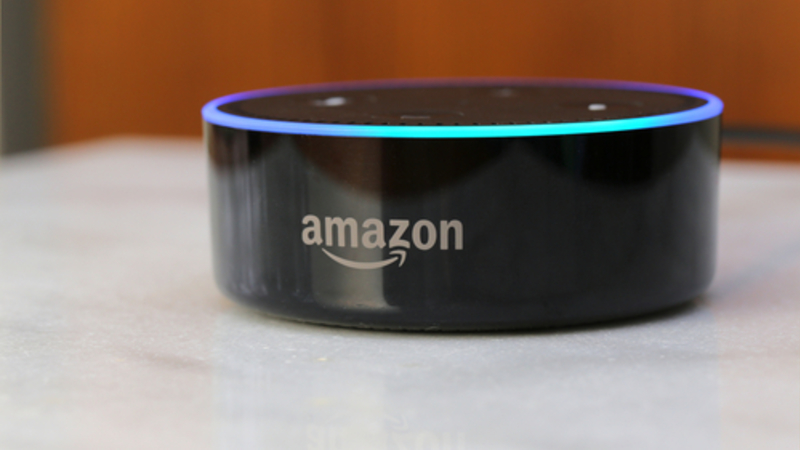The Growing Trend in Connected ‘Smart Homes’
As a country, our obsession with Black Friday is growing. This ‘shopping holiday’ was born in America, being the first Friday immediately after Thanksgiving. Though Britain doesn’t celebrate the Thanksgiving holiday, we sure do like to get involved in the commercialism, and there are now thousands of deals advertised in the weeks surrounding Black Friday each November.
This year, with the growing momentum of smart, connected products, you can pick up a smart home hub for less than the price of a weekly food shop. The two main contenders in the home hub arena are the Amazon Echo and the Google Home, so we’re taking a look at what exactly it is that these devices can do for you and your family.
What do the Echo and Google Home devices do?
The Google Home and Amazon Echo are a new breed of device that will no doubt see competitors in the product market for years to come. Marketed as smart speakers or personal assistants, these products are designed to blend into the décor of your home but sit ever-ready for your voice commands. Some of the more basic tasks that they can perform include:
- Setting alarms;
- Ordering shopping;
- Reading out the news;
- Forecasting the weather;
- Playing music on demand;
- Creating reminders or to-do lists.
However, for those of you willing to look a little further, the abilities of these hubs extend far beyond these simple capabilities already possessed by your smart phones and tablets.
Expanding your smart home
Though many users are content with the basic functions offered by these devices, you can go a step further towards creating a fully connected home using other products, too. By purchasing Wi-Fi or Bluetooth-enabled LED bulbs, you can begin to turn on, turn off or dim your home’s lighting using voice commands rather than switches. If you’re still not content, there are other devices available, including thermostats, wireless speakers, ovens, dishwashers, refrigerators, vacuum cleaners, CCTV systems and doorbells. Even your morning coffee can be brewed for you before your head has left the pillow.
Automation is the future
Perhaps the most impressive of the developments to come out of this smart home revolution are the IFTTT services, otherwise known as ‘If This, Then That’. Known as conditional statements, these services or mini-apps let you establish relationships between the smart products within your home. Why not have your robotic vacuum cleaner automatically kick into action at a specific time of day, or automatically pause when you walk through the front door so that it doesn’t disturb you? How about having the hallway lights switch on automatically when a visitor rings the doorbell? Or perhaps you want the washing machine to spin up a cycle when your morning alarm goes off so that you can hang the washing before you set off for work.
Are there any drawbacks?
As with any product that’s connected to the internet, there are concerns over the use of our personal data. Any new product that doesn’t have an established foothold in the market will have a reputation to establish as a secure piece of technology, and this is especially true of a smart device that contains microphones to record our every word.
One of the main advantages of the Echo is that the device is always connected to your Amazon shopping account, something that's required to offer you the quick-order functions. However, to achieve such functions, the voice data collected has to be transmitted to the cloud, and as well as raising concerns over security, there’s also the moral aspect of handing a large commercial corporation all of our shopping preferences for targeted advertising.
The bottom line
The advent of the internet and its explosive growth have been exciting times to be a part of, and it has brought the world closer together than ever. Now, connectivity is giving us the potential to make our lives easier at home, dreaming up scenarios that were the stuff of dreams in late-20th century sci-fi movies and sitcoms.
Based on recent research from Data Select, a quarter of us already own at least one smart home device. However, there are bound to be drawbacks in future to increased connectivity. How far is too far; would you want the key to your front door to be network connected to the rest of your smart home? As we hand more control over to the ‘internet of things’, a term for the collective group of connected, physical smart devices that make up our worldwide network, we potentially put our security and privacy at an increased level of risk.
With the relatively inexpensive cost of getting on board with the smart home revolution, now is as good a time as any to decide whether you’re excited enough by the technology to ride out the potential risks.
WiseGuys can help
As techies, we love the idea of increased connectivity, giving us more possibilities and an easier way of life at home and on the go. Aside from connectivity with the Echo and Google Home, there are many ways in which the smart home products listed above, such as light bulbs and thermostats, can connect to your existing Android or iPhone, too.
If you’d like to discuss anything iPhone or Android related with Wise Guys, give us a call on 0808 123 2820 and we’ll be happy to help in any way we can.



Recent Comments